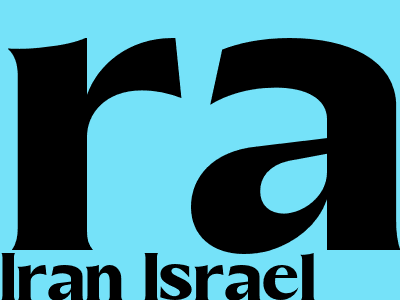Iran and Israel: A Complex Rivalry
A History of Conflict
The rivalry between Iran and Israel has its roots in a long history of political, religious, and cultural differences. Iran, a predominantly Shia Muslim nation, has been ruled by a theocratic regime since the 1979 Islamic Revolution. Israel, on the other hand, is a Jewish state established in 1948, following the Holocaust. These fundamental differences have led to a deep-seated distrust and animosity between the two nations.
Iran's Nuclear Program
One of the major points of contention between Iran and Israel is Iran's nuclear program. Israel believes that Iran's pursuit of nuclear technology poses a grave threat to its security, as a nuclear-armed Iran could potentially use its weapons against Israel. Iran, however, maintains that its nuclear program is solely for peaceful purposes, such as energy production and medical research. This issue has been a major source of tension and conflict for decades, leading to sanctions and diplomatic crises between Iran and the international community.
Regional Influence
Another significant aspect of the Iran-Israel rivalry is their competition for regional influence. Iran is a major power in the Middle East, with significant military capabilities and a large population. Israel, while smaller in size and population, is a technologically advanced nation with a strong military. Both countries have sought to expand their influence in the region, often coming into conflict with each other. For example, Iran has supported militant groups opposed to Israel, such as Hezbollah in Lebanon and Hamas in Gaza, while Israel has carried out airstrikes against Iranian-backed militias in Syria.
Proxy Wars
The Iran-Israel conflict has also played out through proxy wars in other regional conflicts. Iran has provided military and financial support to Shia militias in Iraq, Syria, and Yemen, while Israel has backed anti-Iran forces in these countries. These proxy wars have further deepened the enmity between Iran and Israel and have contributed to the instability of the Middle East.
Diplomatic Relations
Iran and Israel have never established diplomatic relations, and their animosity has been reflected in their official positions. Iran has repeatedly called for the destruction of Israel, while Israel has denounced Iran as a rogue state and a threat to global security. This lack of diplomatic engagement has made it difficult to resolve the underlying issues between the two countries and has contributed to the ongoing tensions.
International Efforts
The international community has made several attempts to mediate between Iran and Israel and to resolve the conflict. In 2015, Iran entered into a landmark nuclear deal with world powers, including the United States, that aimed to curb its nuclear program in exchange for the lifting of sanctions. However, the deal was opposed by Israel, which argued that it did not adequately address the threat posed by Iran's nuclear ambitions. The United States withdrew from the deal in 2018, and Iran has since resumed some of its nuclear activities.
Conclusion
The rivalry between Iran and Israel is a complex and multifaceted issue that has its roots in a long history of political, religious, and cultural differences. The conflict has played out through military confrontations, proxy wars, and diplomatic crises. International efforts to mediate and resolve the conflict have had limited success, and the animosity between Iran and Israel remains a source of tension in the Middle East.

Iran Israel
Komentar